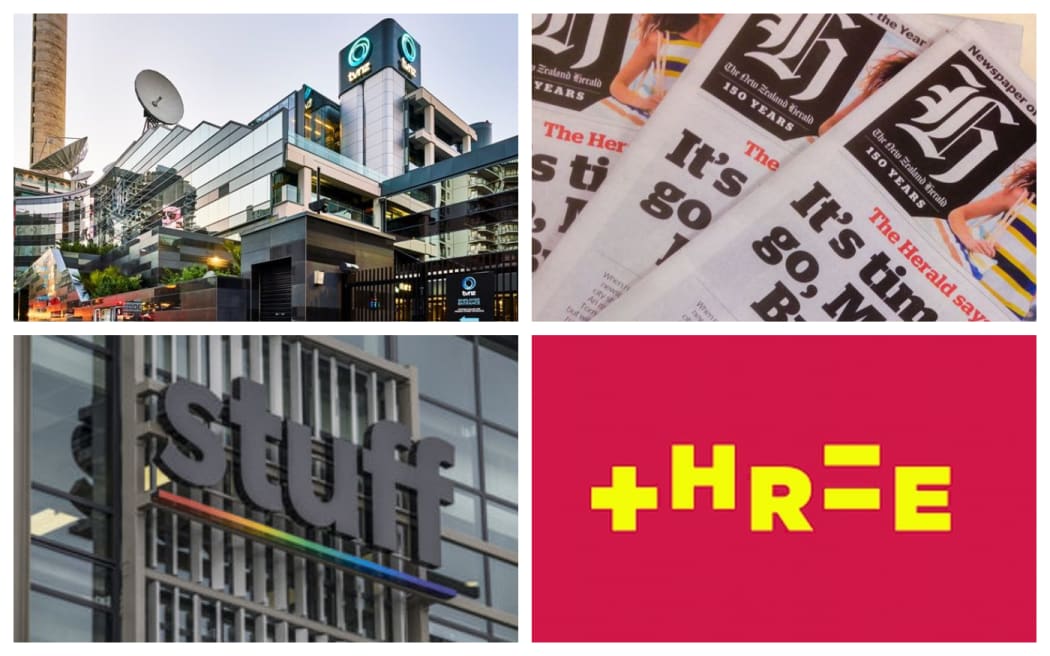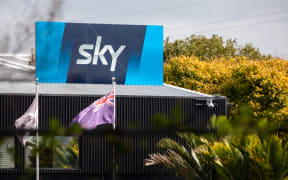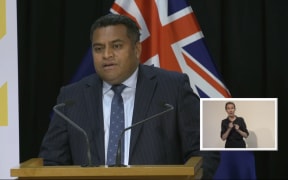Opinion - The media sector has gone from being one of New Zealand's most powerful and profitable, to the unimaginable humbling we see today but should we be taking a closer look at independent media?

Photo: RNZ
For the last few years, all the talk in New Zealand's media has been of a need for consolidation. That our big for-profit media companies - TVNZ, Sky, MediaWorks, NZME and Stuff - all needed to get bigger to survive. Literally every one of them has been linked with a merger or acquisition at some point in the last five years.
The government has proposed merging TVNZ and RNZ. Sky offered to buy Three from MediaWorks, while also trying to merge with Vodafone. Most famously NZME, publisher of the Herald and owner of around half New Zealand's commercial radio stations, has been desperately trying to get together with Stuff for four years, a saga which finally ended in yesterday's extraordinary scenes, when Sinead Boucher snatched Stuff in a management buyout for $1.
While this apparently ends that long courtship, it's absolutely not the end of the idea that scale is the best solution to what ails our media.
The irony is that most of our scale media entities are already the result of consolidation. NZME grew out of a merger of APN's publishing and TRN's radio arm. Stuff grew out of INL, who grew from one newspaper (The Dominion) to acquire more than 80. Sky started as three channels, before buying assets like Prime, Lightbox and an outside broadcasting company. MediaWorks grew from the combination of TV3 with RadioWorks.
Despite this rampant consolidation, all are in some variety of trouble. The sector has gone from being one of New Zealand's most powerful and profitable, with each of those companies worth around a billion or more at their heights, to the unimaginable humbling we see today. In December I looked back on the decade in media and wrote that "right now, a wealthy New Zealander with $500m to spare could buy New Zealand's biggest newspaper, its entire pay TV industry, half its radio network and a giant tranche of digital assets and still have money left over to buy its biggest private free-to-air TV channel (Three, a once mighty business battling for its life)."
Now, less than six months later, you could plausibly bid for those assets with a little over $100m. The companies have been humbled by the power of the digital insurgents - Google, Facebook and TradeMe eating away at their revenue lines - then smashed again by the downturn in advertising under levels three and four and the looming recession.
The case for consolidation-as-solution, now made with eye-popping urgency, goes that all these groups are operating their existing businesses (TV, radio, print, pay TV) while also building out new ones (online versions of the same, essentially). And that both the development costs and the business cases are only rational at ever-greater-scale.
Yet the more I look at our media sector - and it's essentially all I look at, because I'm a huge bore - the more I wonder if consolidation isn't actually the solution at all. And that instead of encouraging giant entities to get ever larger, with all the inherent dangers to plurality and too-big-to-fail dynamics which go along with that, we shouldn't instead be looking out at a flowering of the independents for a future of New Zealand's media.
Already there are a number of promising organisations growing up and targeting narrower audiences with more tailored content offerings and different funding models. The one I run, The Spinoff, is one, but there are a decent number of startups of relatively recent vintage - Newsroom, The Coconet, BusinessDesk, E-Tangata, Crux, the Pantograph Punch and others I'm forgetting.
The collapse of Bauer is likely to precipitate some more, with ex-Metro editor Henry Oliver's Essential Services zine and Capsule, run by a collection of former editors of the women's-focussed titles, the first out the door. Rumours are flying that others will soon follow.
Yet it's not just startups which are firing up. On the public media side, RNZ's moved aggressively to own the podcast space and consistently expanded its online offer, while Māori TV has started to create much stronger digital products like Te Ao. The NBR has moved to a pureplay online model, and talks up a storm about its growth plans. NZ Geographic is a single title publisher which also consistently creates New Zealand's best longform journalism, and has adeptly navigated the online / offline world.
To be clear, none of these outlets on its own can replace the work done by our major providers of journalism. Stuff political journalist Henry Cooke's comment is entirely correct on this point:
there is a widespread belief that boutique outfits like Newsroom and The Spinoff (two outlets I love!) - can replace big national newsrooms like the ones at NZH and Stuff. i think this is quite misguided.
— henry cooke (@henrycooke) May 17, 2020
Yet there is an alternate path for the major organisations too. Rather than getting ever larger and more complex, they could also get smaller and simpler. Take Stuff, for example. Sources tell me it last year turned down quality offers from regional powerhouses like Allied for titles like The Press. Part of the reason Nine passed on those deals was the desire for a clean transaction. Yet there is no reason why the new management-owned Stuff wouldn't want to sell off many of the smaller-market titles, with the titles trading through and thus avoiding the ugly and damaging scenes the collapse of Bauer created.
Cities and towns could find individuals and groups to buy their hometown titles, with copy running on their own sites, potentially with a syndication deal to Stuff (or anyone else for that matter), to ensure both national and regional coverage is maintained. They would not be the massive profit-centres they once were, but there are hundreds of new and old city and town newsrooms around the world thriving on some combination of reader revenue, philanthropy and innovation. Stuff might end up being simply the Dominion-Post, the Sunday Star-Times and the juggernaut website, with everything from Neighbourly to the Waikato Times sold off to create a lean operation with a strong range of incoming content deals and a decent cash pile to survive the recession and emerge as an efficient and right-sized business, with far more goodwill than it had going in. Some of the on-sold newspapers would inevitably fail, but others would thrive, and the network is less endangered by being far more distributed in its operation.
This could be accomplished with the post-Bauer magazines, and radio too, both in terms of brands and frequencies. Perhaps we'll see a slew of management buyouts, as private equity ceases to view media as a cash cow, and it returns to being a solid owner-operator style business sector.
This scenario would force media agencies to work harder, as audiences would begin to splinter, but there are good businesses which already exist and could be created to sit between these organisations, concentrating solely on sales, marketing, or distribution (Stuff would be well-placed to be a giant in this scene, as is NZME). There is a strong case for the state-owned likes of RNZ and TVNZ performing some of those functions, allowing them to be seen as facilitators of a new independent media, rather than its competitors.
Most of all, the new independents would cast off the weight of being seen as grey, cynical corporates (a mostly unfair but widespread perception), and thus be able to enjoy the power and financial goodwill of being seen as locally-owned and independent. And with that the case for government support - through the expanded local democracy reporting scheme currently being discussed - would be that much more politically palatable. It's easier to help out the Wairarapa Times-Age than it is MediaWorks. That might not be fair, but it's reality.
Something has to give, and with the sale of Stuff it is very likely to happen reasonably quickly. The current model sees advertising on newsprint owned by consolidated groups funding a large majority of New Zealand journalism. This is no longer financially viable, and will never be again. But New Zealand's media industry was built on hundreds of papers starting small, and attracting a loyal audience. For decades that was the norm, until they began being hoovered up and combined. Maybe it's a trend that has had its day, and it's time for it to reverse. That instead of ever tighter consolidation, it's time for the independents to rise again.
Duncan Greive is founder and managing editor of The Spinoff. This is the second in a series of articles from media chief executives about the future of their industry.






